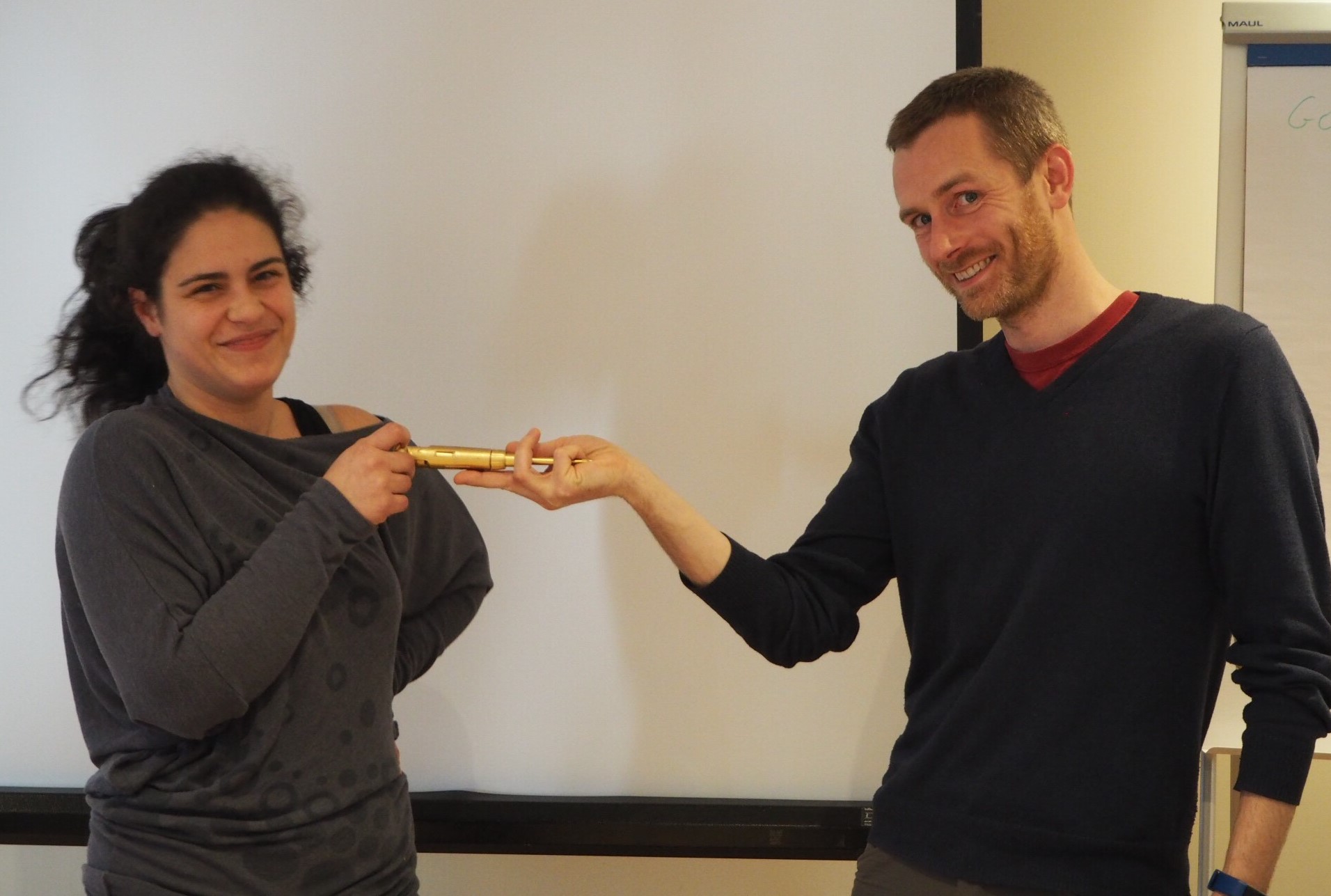This week is World Primary Immunodeficiency week. Primary immunodeficiencies (PID) are a cluster of rare immunological diseases, caused by genetic defects in any one of dozens of immunological diseases. The diseases are highly diverse at both a genetic and clinical level, ranging from immunodeficiency to multiple autoimmune manifestations to autoinflammatory manifestations. Typically, the diseases are caused by Mendelian mutations creating a specific defect in a single immunological checkpoint. Key problems in the field have been identifying the gene of interest (as many of the disorders show clinical heterogeneity and overlap) and identifying the immunological checkpoint that is disturbed.

While gene discovery had been previously limited by the need for large affected families or distinct clinical presentations across multiple families (for classical genetic mapping), the advent of next generation sequencing gave rise to the possibility that even single families could be investigated. In 2010 we set up a large-scale immunogenetics study on PID patients from the clinic in Leuven.
The PID research program that we run has led to the mechanistic understanding of multiple new gene- disease associations. Results include the identification of Olmsted syndrome as an immunological as well as a dermatological disorder (Danso-Abeam et al, Orphanet Journal of Rare Diseases, 2013), STAT2 deficiency as a cause of severe viral childhood disease (Moens et al, Journal of Allergy and Clinical Immunology, 2017), IKAROS and IFIH1 mutations as a cause of juvenile systemic lupus erythematosus (Van Eyck et al, Arthritis and Rheumatology, 2015; Van Nieuwenhove et al, Journal of Allergy and Clinical Immunology, in press), and Roifman Syndrome as a disease of defective B cell development (Heremans et al, Journal of Allergy and Clinical Immunology, 2018). We have also identified novel treatments through this approach, such as in deficiency in adenosine deaminase 2 (DADA2, frequency unknown), which we independently identified and found to be cured by hematopoetic stem cell transplantation (Van Eyck et al, Journal of Allergy and Clinical Immunology, 2015). Several examples of this work deserve extra attention:
One of the major successes of this program was the identification of a new PID, Pyrin-associated neutrophilic dermatosis (PAAND). The study started with a single large family in Flanders who manifested a severe inflammatory skin condition. Through using our genetic screening approach we identified a mutation in MEFV, the gene encoding Pyrin. MEFV mutations had previously been associated with a different PID, Familial Mediterranean Fever (FMF, affects 1 in 1000 individuals in Mediterranean groups). Different mutations in the same gene were driving PAAND and FMF, with clinically distinct outcomes. We found that the PAAND mutation had destroyed a key immunological safety switch on the inflammasome (the multi-protein complex that initiates inflammation). In the absence of this safety switch, small triggers could drive the production of the inflammatory cytokine IL-1 (Liston and Masters, Nature Reviews Immunology, 2017). Returning to the clinical setting, we identified additional families with the disease and found that we could successfully treat the inflammation with recombinant IL-1 antagonist (Masters et al, Science Translational Medicine, 2016). We are now leading further multi-centred clinical trials on this disease.
Another PID we have worked on is Familial hemophagocytic lymphohistiocytosis (FHL). The genetic origin of FHL is largely known, with defects in the perforin pathway by which cytotoxic CD8 T cells kill viruses. Before our work, the general model for FHL disease mechanism was that certain viruses were difficult to control without perforin, leading to excessive viral titres. The compensatory increase in the cytokine interferon gamma would then drive the inflammatory and haematological symptoms of the disease. Using mouse models that mimic the disease, we demonstrated that while interferon gamma certainly increases to very high levels, this cytokine was only driving the haematological symptoms and was not responsible for the fatal inflammatory symptoms. Instead, the disease mechanism is driven by the hyper-activation of CD8 T cells leading to the “theft” of a cytokine called IL-2, which normally feeds an anti-inflammatory T cell population known as regulatory T cells. In both mice and humans with FHL, this theft leads to a dramatic loss of regulatory T cells and drives the inflammatory aspects of the disease (Humblet-Baron et al, Journal of Allergy and Clinical Immunology, 2017 and in press, Liston and Gray, Nature Reviews Immunology 2015). This work has opened up a new target for therapeutic intervention for this disease.
A seemingly paradoxical PID is leaky severe combined immunodeficiency (leaky SCID) which combines both immunodeficiency and excessive immune activation. Having developed a model to account for this paradoxical combination (Siggs et al, Immunity 2007; Liston et al, Nature Reviews Immunology 2008), we sought to direct test the model in mice. We developed a new mouse model for leaky SCID and found that, as predicted, the immune activation features were caused by a deficiency in regulatory T cell functions. Further, we found that these symptoms could be abrogated through the treatment of abatacept, an approved treatment for rheumatic arthritis (Humblet-Baron et al, Journal of Allergy and Clinical Immunology 2017). As abatecept is already approved for clinical use, this approach could immediately move into clinical trials.
We are now working on many more cases of suspected PID in the clinic, and hope to make more major breakthroughs in the near future!
If you are worried that your child may have a primary immunodeficiency, take a look at the Jeffrey Modell Foundation site, which outlines the warning signs and will help you find an expert.
If you would like to support our clinical research, and allow us to take on more cases like these, you can make a tax-deductable donation the Ped IMID fund, by transferring to IBAN-number BE45 7340 1941 7789, BIC-code: KREDBEBB with the label "voor EBD-FOPIIA-O2010".
 Tuesday, May 15, 2018 at 10:52AM
Tuesday, May 15, 2018 at 10:52AM 
 Liston lab,
Liston lab,  women in science
women in science 










